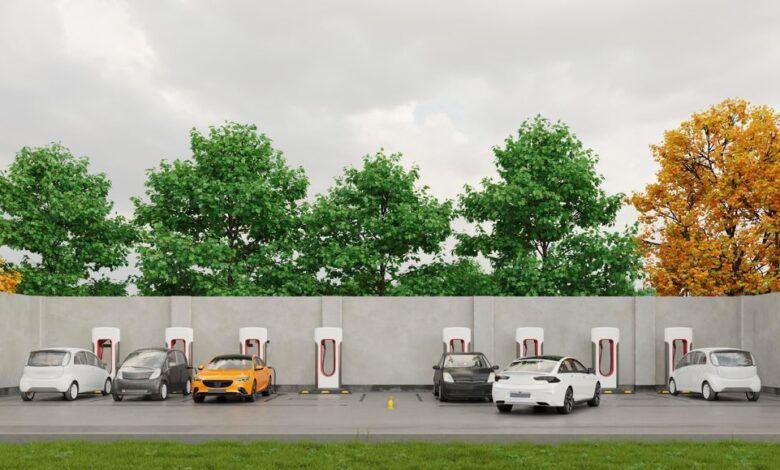Electric Vehicle Industry Encounters Slowing Growth And Production Obstacles

In the realm of sustainable transportation, companies like Tesla (NASDAQ:TSLA), Rivian (NASDAQ:RIVN) and Lucid (NASDAQ:LCID) have emerged as frontrunners, revolutionizing the electric vehicle (EV) market with innovative technologies and ambitious growth plans. These enterprises have played pivotal roles in propelling the EV sector to the forefront of the automotive industry, setting new standards for environmental responsibility and technological advancement. However, recent developments have revealed significant challenges, including a noticeable slowdown in consumer demand and various production hurdles, casting a shadow over the sector’s future prospects and its potential to maintain the momentum of its rapid expansion.
Tesla, a trailblazer in the EV market, has recently encountered a notable setback, with its first-quarter vehicle production reaching 433,371 units and deliveries totaling 386,810. This marks an 8.5% decline in deliveries from the corresponding period in the previous year, representing the institution’s first year-over-year decrease since 2020. The gap between the number of vehicles produced and those delivered highlights the obstacles the enterprise faces in managing its inventory, exacerbated by pricing adjustments and the impact of rising interest rates on vehicle sales. Furthermore, the organization has had to navigate through production disruptions, including parts shortages and an arson attack on its German plant’s power supply, adding layers of complexity to its operational challenges.
Rivian, another significant entity in the EV landscape, has also reported less-than-expected performance in terms of production and deliveries for the first quarter. The business managed to produce 13,980 vehicles and achieved deliveries of 13,588, missing its targets but showing a marginal improvement over its delivery estimates. Rivian’s projections for the full year suggest a modest uptick, mirroring the subdued demand trends that are becoming increasingly apparent across the EV sector.
On the luxury end of the market, Lucid has been navigating through turbulent waters, with its first-quarter delivery figures still pending. The previous year’s performance, combined with an operating loss surpassing $3 billion, underscores the precarious position of the corporation. Securing a substantial investment, the forthcoming delivery report from Lucid is expected to reflect the adverse conditions that continue to plague the industry.
The broader EV market is experiencing a slowdown in sales growth, a stark contrast to the explosive expansion witnessed in prior periods. In the United States, the increase in electric vehicle sales was a mere 2.7% during the first quarter, significantly lower than the 47% growth rate that fueled record sales the year before. This deceleration, coupled with the hesitancy of mainstream consumers, underscores the challenges ahead, including concerns about charging infrastructure and battery longevity.
As the electric vehicle sector confronts these pressing issues, the response from companies like Tesla, Rivian and Lucid will be instrumental in determining the industry’s trajectory. The current period of uncertainty demands strategic resilience and a keen focus on innovation, as well as an adeptness in addressing both the internal operational challenges and the broader economic and technological factors influencing market demand. The path forward for the EV market hinges on the ability of these enterprises to adapt and evolve, ensuring their survival and success in an increasingly competitive and complex landscape.



